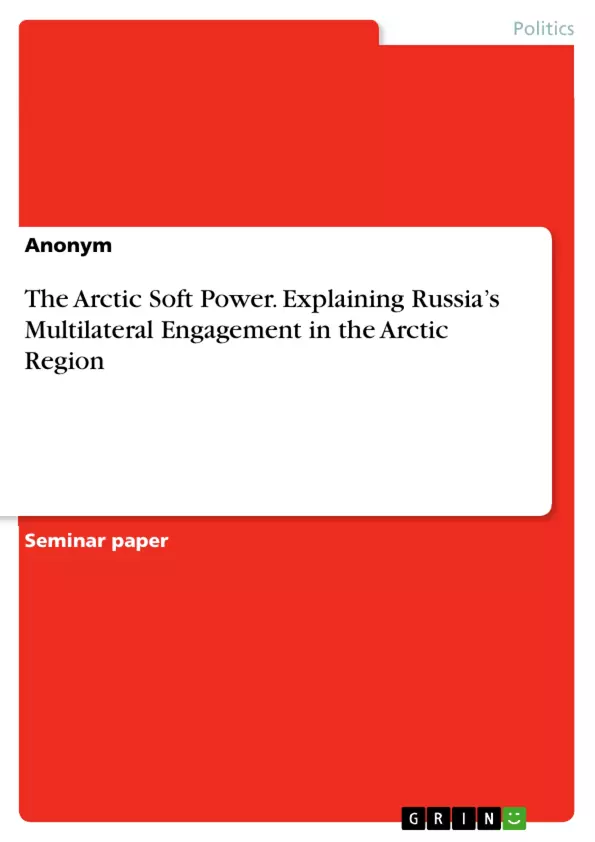When the Russian flag was placed on the ocean floor at the North Pole in summer of 2007, the Western press sought public attention with headlines such as “Arctic Meltdown” or “Arctic Land Grab”. Only recently, Kremlin’s announcement to strengthen its military foothold in the far north was answered by the Western media in similar fashion, stating that “Russia prepares for Arctic War” or “Start of a very cold war”. Even though Russia’s activities in the Arctic vary considerably compared to its entanglement in the Ukraine, the media coverage suggests the same sense of antagonism, competition and crisis. Western commentators first of all tend to overlook that planting a national flag at targets difficult to reach is common among explorers as in the case of the Mount Everest, the South Pole or the Moon. Second of all, Russia has ratified the law of the sea convention which prescribes and establishes rules governing all uses of the oceans and their resources – a convention which was not ratified by the United States and several other countries. The point is not to criticize the Western media coverage or the absent ratification of the sea convention by the U.S., but to draw attention to a possible bias in order to impartially examine what kind of foreign policy Russia actually pursues in the High North.There is a broad consensus among the vast majority of academics and observers of Russia’s Arctic policy, namely that Russia is pursuing an Arctic policy that mainly focuses on compromise, collaboration, and stability; therefore, Russia relies on soft power policies such as diplomacy, multilateral engagement and economic development. For many, this comes rather surprisingly, since the political leadership of President Putin is associated with a realist and revisionist foreign policy strategy that does not like to follow international rules.
In this sense, this short paper aims to examine the question of what is motivating Russia to pursue soft power policy in the Arctic from different angles.
Inhaltsverzeichnis (Table of Contents)
- Introduction
- Russia's Interest in the Arctic
- Russia's Multilateral Engagement
- Case Study: Norwegian-Russian Delimitation Agreement
- Social Constructivist Approach to Russia's Arctic Policy
- Discussion and Outlook
Zielsetzung und Themenschwerpunkte (Objectives and Key Themes)
This paper explores the motivations behind Russia's pursuit of soft power policy in the Arctic. It examines Russia's interests in the region, its multilateral engagement, and the use of diplomacy, collaboration, and economic development to achieve its objectives. The paper also analyzes how peaceful dispute resolution can contribute to Russia's goals and explores the role of social constructivism in understanding Russian soft power strategy.
- Russia's strategic interests in the Arctic, including military security, economic development, and transportation
- Russia's engagement in multilateral cooperation and its reliance on soft power policies
- The significance of peaceful dispute resolution and its contribution to Russia's Arctic goals
- The application of social constructivism in explaining Russian soft power policy in the Arctic
- Russia's potential role as a soft power leader in the Arctic region
Zusammenfassung der Kapitel (Chapter Summaries)
- Introduction: This chapter introduces the topic and establishes the context for the paper, highlighting the media's portrayal of Russia's Arctic activities and the need for an impartial examination of its foreign policy in the region.
- Russia's Interest in the Arctic: This chapter delves into Russia's vital interests in the Arctic, emphasizing its significance for the country's economy and security. It discusses the melting Arctic ice and its geopolitical and economic consequences for Russia, particularly its long border, the two million Russians living in the region, and the substantial industry present there. The chapter highlights Russia's stated national interests in the Arctic, focusing on military security, economic development, and transportation.
- Russia's Multilateral Engagement: This chapter examines Russia's involvement in multilateral cooperation in the Arctic. It analyzes the soft power policies Russia implements to achieve its interests, emphasizing its commitment to compromise, collaboration, and stability.
- Case Study: Norwegian-Russian Delimitation Agreement: This chapter presents a case study of the peaceful dispute resolution between Norway and Russia over their maritime border in the Barents Sea. It analyzes how this agreement exemplifies Russia's willingness to employ diplomacy and compromise to achieve its goals in the Arctic.
Schlüsselwörter (Keywords)
The key themes and concepts explored in this paper include Russia's Arctic policy, soft power, multilateral engagement, economic development, military security, transportation, peaceful dispute resolution, social constructivism, and Russia's potential role as a soft power leader in the Arctic region.
- Arbeit zitieren
- Anonym (Autor:in), 2018, The Arctic Soft Power. Explaining Russia’s Multilateral Engagement in the Arctic Region, München, GRIN Verlag, https://www.grin.com/document/450624



